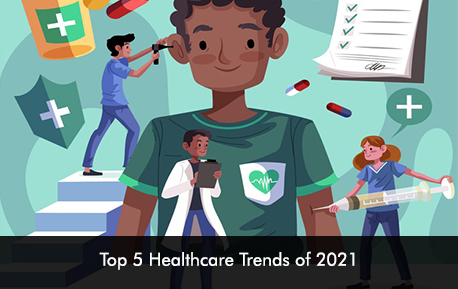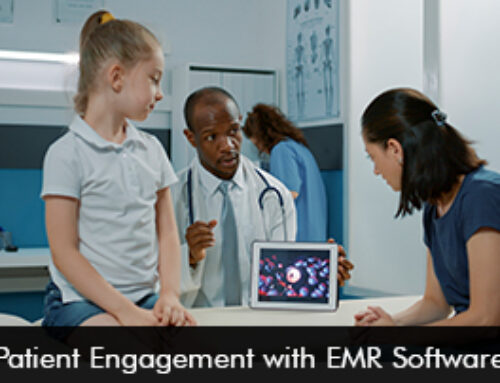Year 2020 has been devastating in terms of economic, social, and healthcare impacts it has had on the world, however, the COVID-10 pandemic pushed the whole world to find quick and scalable healthcare solutions to curb the spread of the deadly virus. We saw hospitals, healthcare professionals leveraging technology and digital solutions like never before which has reshaped the healthcare landscape and revolutionized the patient care process. In this article, we have jotted down the healthcare predictions and trends for this year which will provide new opportunities for growth and focus for healthcare professionals.
5 Interesting Healthcare Trends of 2021
- Virtual Care and Remote Medicine – The second wave of the pandemic is persisting the whole world and hospitals have leveraged virtual care tools such as Telemedicine EMR Software solutions to offer remote care opportunities to patients. These virtual sessions help to provide prompt diagnosis and treatment of various conditions and can help to provide on-going care to patients with chronic health conditions such as diabetes. Remote medicine allows physicians to see more patient populations in their schedule and also helps to reduce the spread of the virus. Telemedicine platform can be used to link therapists with mental health patients for effective sessions to be held to reduce the issues of depression, anxiety, and loneliness that has resulted from the pandemic. 202I will see a rise in the use of virtual care as both patients and doctors have seen their benefits.
- AI-Driven Prediction Tools – Artificial Intelligence has gained prominence due to the precision of data that is needed by healthcare professionals to provide them with a complete and accurate picture of when an intervention is required. The COVID-19 pandemic has been extremely hefty for the healthcare sector with revenues falling by 50% in the United States as patients avoided going to hospitals. This trend will lead to a dependence on AI-driven prediction tools to project where resources can be used most efficiently. Insurance providers will also use predictive technology to set premiums that are more specific and comprehend financial risks in a better way.
- Gene Editing and Genomics – Innovations in gene editing and genomics have led to customized care. Therapies and drugs can be easily personalized which matches a patient’s genetic profile which leads to enhanced treatment and care. The gene-editing technology is also been used to identify patients with COVID-19 by creating a lab on a chip.
- Growth in Digital Therapeutics – The pandemic has affected many people’s mental and behavioral health due to loss of loved ones, loss of jobs, and staying in isolation. This means digital therapeutics will be needed more to treat symptoms of depression, PTSD, substance abuse, and other mental health conditions. Digital therapeutics can use virtual care and video tools to interact with their patients to repress the overall mental anguish prevailing in society.
- Interoperability and Integration – The need for interoperability and integration option in your Electronic Medical Records (EMR) software system has become highly important for improved care coordination and seamless share of data between different systems. Interoperability is important as healthcare sectors must interact with each other to share patient data. By making healthcare data available universally through interoperability patient outcome levels can enhance.
Moving Ahead
It is crystal clear that the previous year has set the trend for healthcare systems to adapt and embrace technology and digital tools without any inhibitions. Remote care will continue to grow because of its convenience and effectiveness. Patients no longer expect to be treated inside a hospital facility but prefer going to healthcare providers that offer services through telehealth and use robust technology to enhance their overall patient experience.







